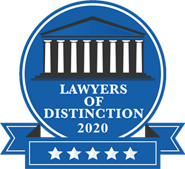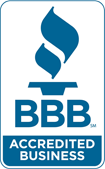
Alabama Bankruptcy Lawyer Knowledgeable in Nondischargeable Debt
The goal of filing for bankruptcy is to get a “discharge.” When a debt is discharged, you are no longer personally liable for it, and a creditor may no longer attempt to collect the debt. The debts that are most easily discharged are consumer debts, such as unpaid medical bills or credit card bills. Although most consumers’ debts can be discharged in either Chapter 7 or Chapter 13 bankruptcy, there are some nondischargeable debts that will outlast a bankruptcy proceeding. For advice on how to handle these debts, you should consult the experienced Montgomery bankruptcy attorney Charles Grainger. He has assisted clients throughout Alabama with resolving complicated matters concerning personal finances.
Types of Nondischargeable Debt
The most socially important debts may not be discharged, for it would be against public policy to allow a debtor to escape from paying them. Thus, there are 19 categories of debts listed in the Bankruptcy Code that are expressly nondischargeable. Under extraordinary circumstances, you might be able to ask the court to discharge such debts, but you would have to have a truly compelling reason.
Nondischargeable debts include:
- Debts not listed in the bankruptcy filing documents unless a creditor knew of the bankruptcy filing
- Court fines and penalties associated with criminal restitution
- Attorneys’ fees for child support or child custody, as well as alimony and child support debts
- Some tax debts
- Debts for fines or penalties imposed by government agencies
- Personal injury debts related to drunk driving
- Student loan debts
- Debts on some retirement plans
- Condo or cooperative housing fee debts
Perhaps the most common nondischargeable debts are child support, alimony, certain taxes, and student loans. If most of your debts are considered priority nondischargeable debt, filing for Chapter 7 bankruptcy probably will not help you with those debts because you will still owe all these debts at the end of the bankruptcy. A Chapter 7 bankruptcy will still eliminate the other debts, however, which may enable you to pay the non-dischargeable debts. Chapter 13 may work better for you because your debts will be restructured over 3-5 years and it gives you protection during that time which you may use to improve your income. This allows you time to get your affairs in order and learn new financial habits.
There are also certain obligations that can be made nondischargeable when a creditor successfully objects to the court discharging the debt. This category of potentially nondischargeable debt includes luxury purchases, debts obtained by fraud, or debts resulting from willful and malicious injury to someone else’s property. It also includes cash advances that you got within 70 days of filing for bankruptcy if the advances together total more than $925.
“Luxury purchases” means a credit card purchase within 90 days of filing for bankruptcy of luxury goods from a single business or creditor that are worth more than $650. To convince the court that this debt should be dischargeable, the creditor will need to prove that you did not plan to repay the debt in question or that the charges were for luxury items. Similarly, you can fight to have the cash advances discharged by proving a substantial change to your financial circumstances subsequent to obtaining the cash advances, such as an attempted foreclosure or garnishment.
A judge must evaluate each creditor’s challenge. If a creditor’s challenge is found proper, the debt won’t be discharged. If it not proper, the debt will be discharged.
Consult an Experienced Montgomery Bankruptcy Attorney
A mistake while filing bankruptcy, such as leaving important debts off your schedule and mailing list, may leave you with debts after bankruptcy, even though those debts were dischargeable. This is one reason it is critical to consult Montgomery bankruptcy lawyer Charles Grainger. He can advise you on whether you have nondischargeable debt and whether filing for bankruptcy is still a worthwhile option. He can also suggest long-term solutions to your financial troubles. We serve clients in South-Central Alabama, from our offices located in Montgomery, Prattville, and Troy. Call us at (334) 260-0500 or contact us online to schedule a free initial consultation.


 Attorney Charles Grainger possesses decades of legal experience focused on debtor-creditor law, bankruptcy, and business law. His legal work is designed to help clients overcome debt and secure a stronger financial footing. He also provides legal services to entrepreneurs and business owners. Grainger Legal Services takes a comprehensive approach to debt relief and financial education for clients in south-central Alabama. [
Attorney Charles Grainger possesses decades of legal experience focused on debtor-creditor law, bankruptcy, and business law. His legal work is designed to help clients overcome debt and secure a stronger financial footing. He also provides legal services to entrepreneurs and business owners. Grainger Legal Services takes a comprehensive approach to debt relief and financial education for clients in south-central Alabama. [ 


